Submitted by WA Contents
Vitra Design Museum opens new exhibition exploring micro-scale of MENA region
Germany Architecture News - May 10, 2017 - 14:25 19343 views
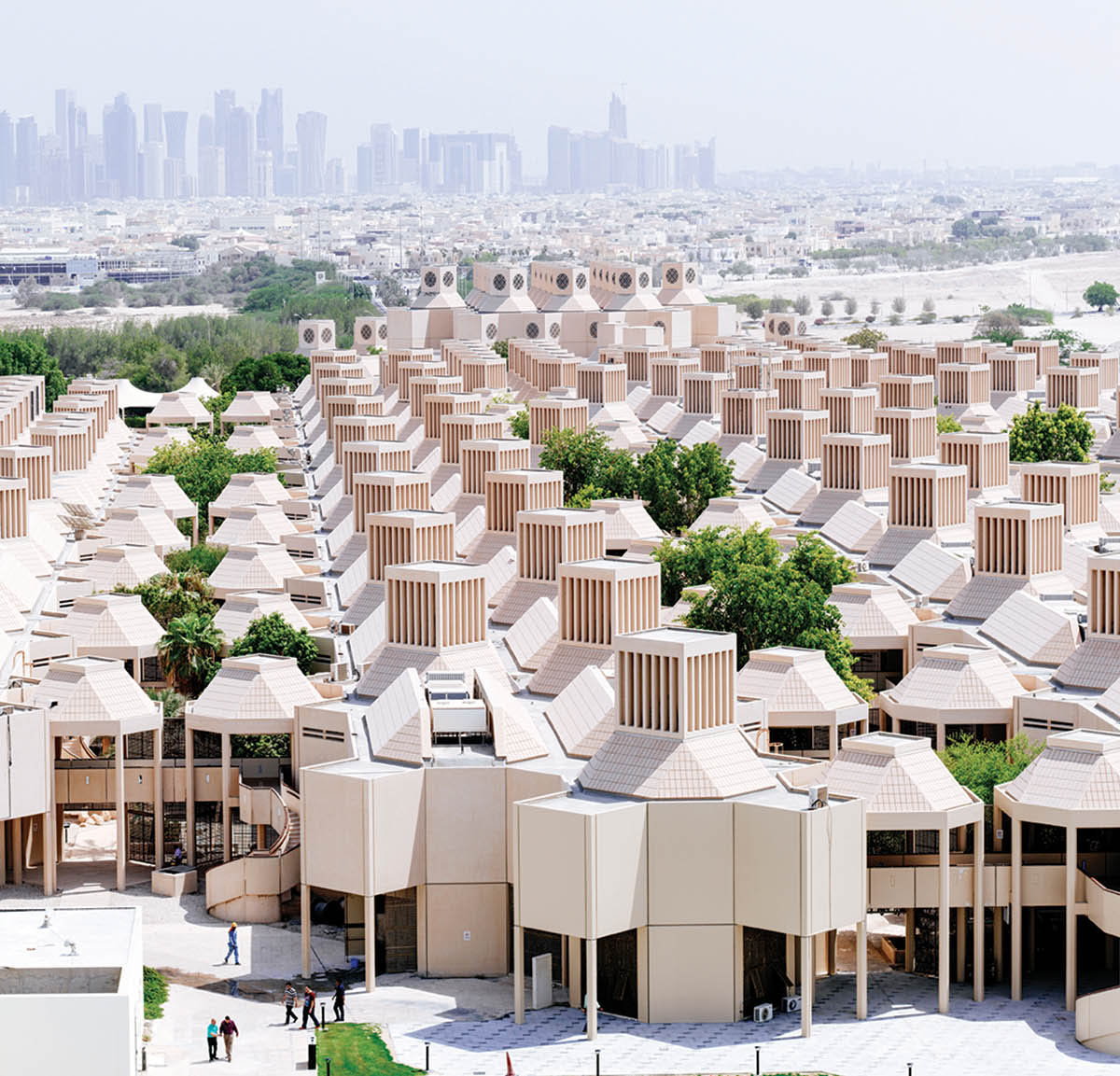
The Vitra Design Museum in Weil am Rhein opens a new exhibition -named Mudun دن Urban Cultures in Transit - focusing on MENA (Middle East and North Africa) region's contemporary urban culture and inhabitants' cultural life from a micro-perspective and neighborhood level. The exhibition will be on view between May 13 and August 20, 2017 at the Vitra Design Museum Gallery, designed by Frank Gehry.
After one year of research, the project has been developed in cooperation with the publishers of Dubai-based magazine Brownbook. The new exhibition will explore Ankara, Baghdad, Tehran and Tangier are vibrant metropolises of the MENA region (Middle East and North Africa). They pulsate with an innovative cultural life – despite the political headlines.
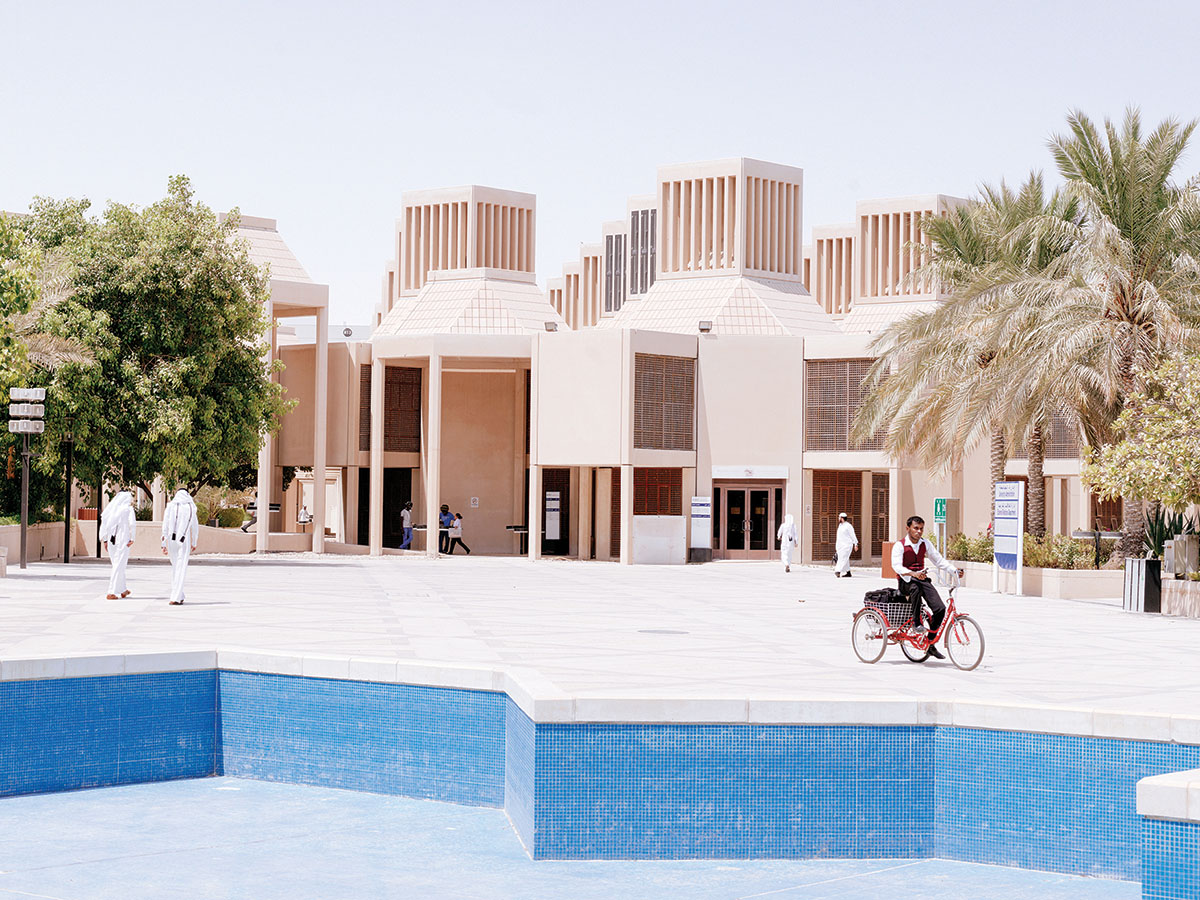
Qatar University in Doha, Qatar Designed by Kamal El Kafrawi, 1974–1983. Image © Markus Elblaus
The exhibition views these cities from a micro-perspective, examining their architecture, urban neighbourhoods and the protagonists who shape them. Featuring contemporary photographs, models and texts, the show conveys the dynamic atmosphere of individual locales and the relationship of inhabitants to their spatial surroundings.
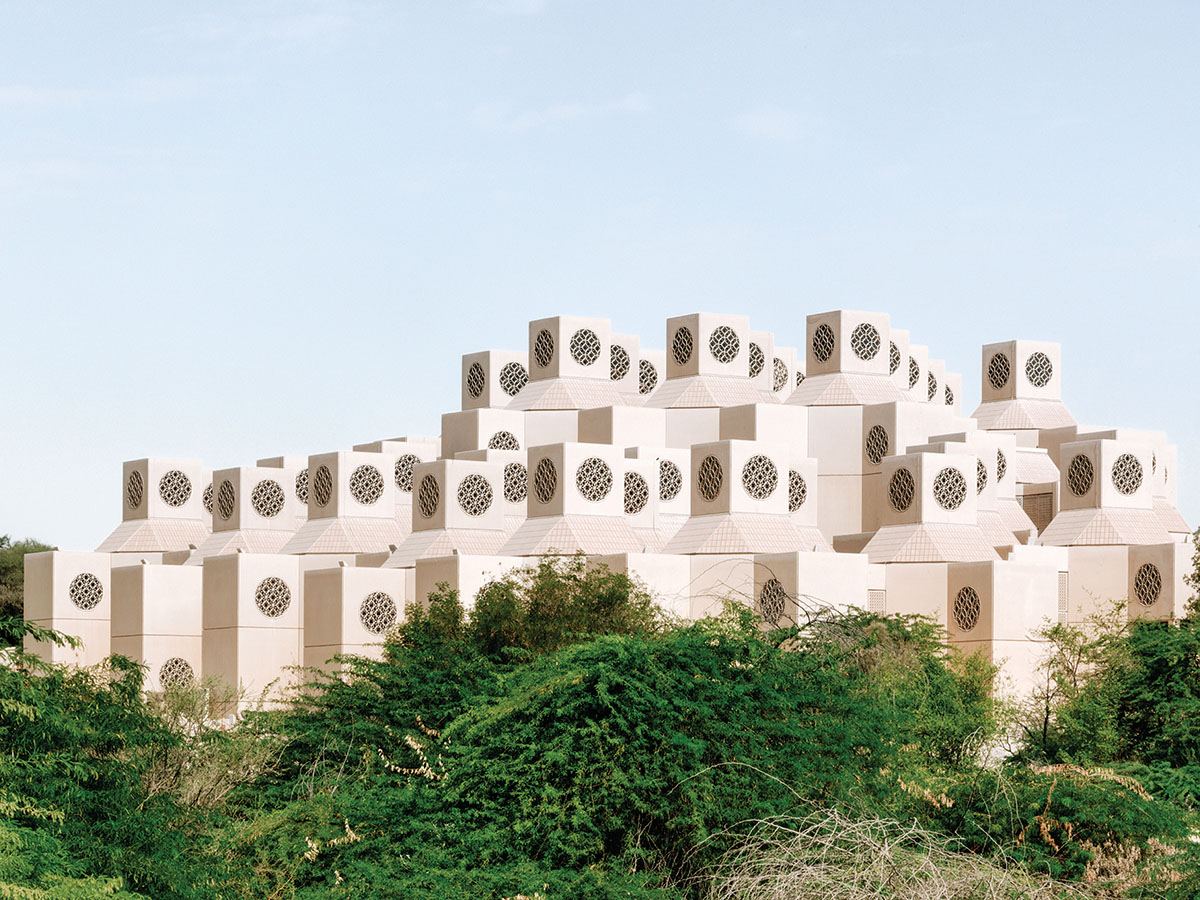
Qatar University in Doha, Qatar Designed by Kamal El Kafrawi, 1974–1983. Image © Markus Elblaus
What is the significance of the architectural heritage left by the twentieth century? And where have political conditions impacted and transformed the urban structure? What kinds of intercultural identities are engendered in the diaspora? Mudun دن Urban Cultures in Transit puts a focus on these questions.
The exhibition examines contemporary urban culture in the MENA region – an area whose metropolises provide space for critical debate, sub-cultures and an artistic avant-garde.
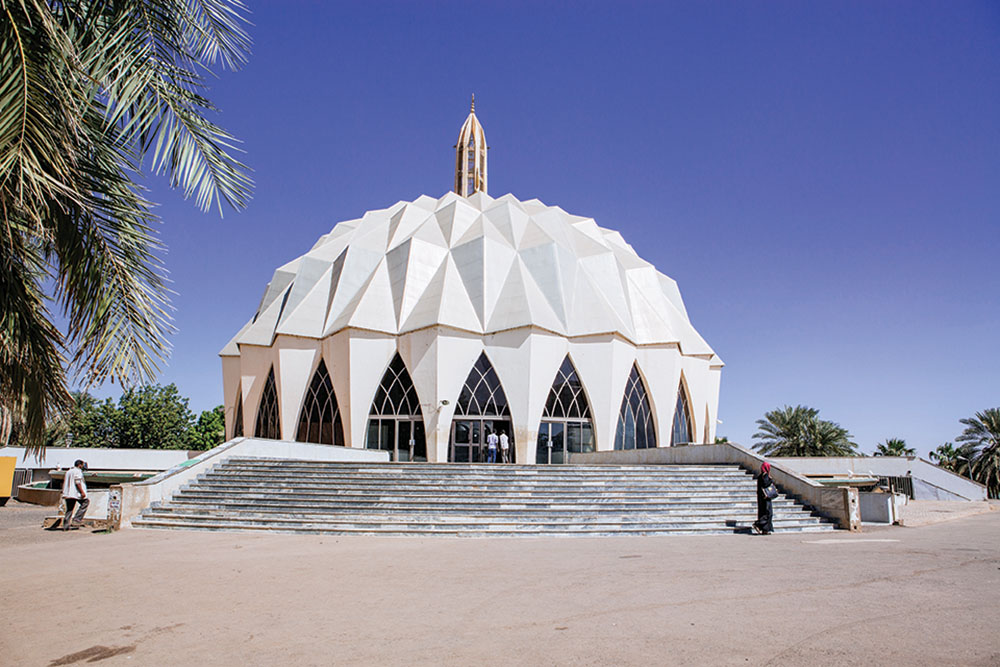
Al Nilain Mosque in Omdurman, Sudan by Gamar Eldowla Abdelgadir, 1976 - 1983. Image © Ala Kheir
This is illustrated by examples from the Middle East and North Africa, presented in the form of architectural models, photographs and texts. The architectural heritage of Modernism, the current situation in urban agglomerations and the stories of people living in the diaspora demonstrate how urban spaces shape cultural identity.
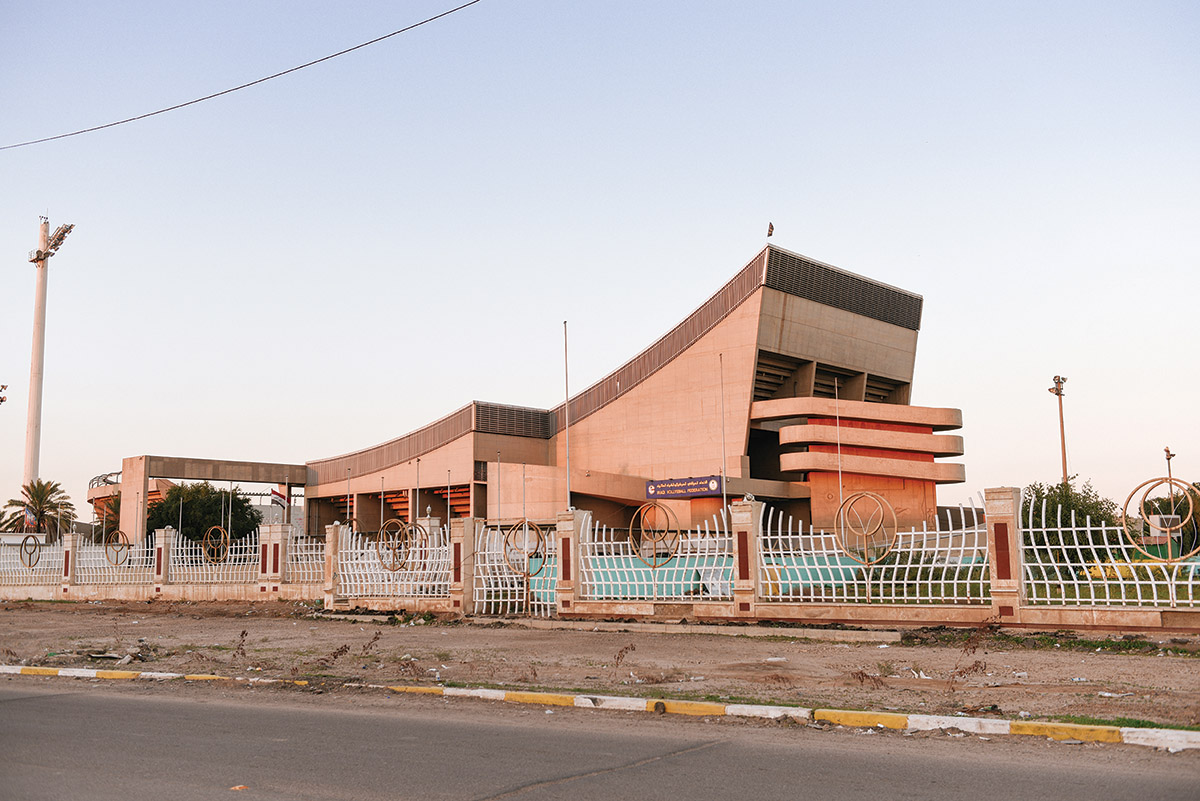
Gymnasium in Bagdad, Irak, designed by Le Corbusier, realized posthumously, 1978– 1980. Image © Ayman Al Amiri
The exhibition is divided into three thematic sections – Architecture, Places and Societies – which portray buildings, urban neighbourhoods and people. The first section, Architecture, encompasses ten models of public buildings selected by architect Fatma Al-Sehlawi and fabricated in fired clay by Xeina Malki.
Completed between 1960 and the present day, the depicted structures include Queen Alia International Airport in Amman, the Tehran Museum of Contemporary Art and the Baghdad Gymnasium after plans by Le Corbusier. At the time of their construction, they were regarded as symbols that would strengthen the identity of a community – or an entire nation.
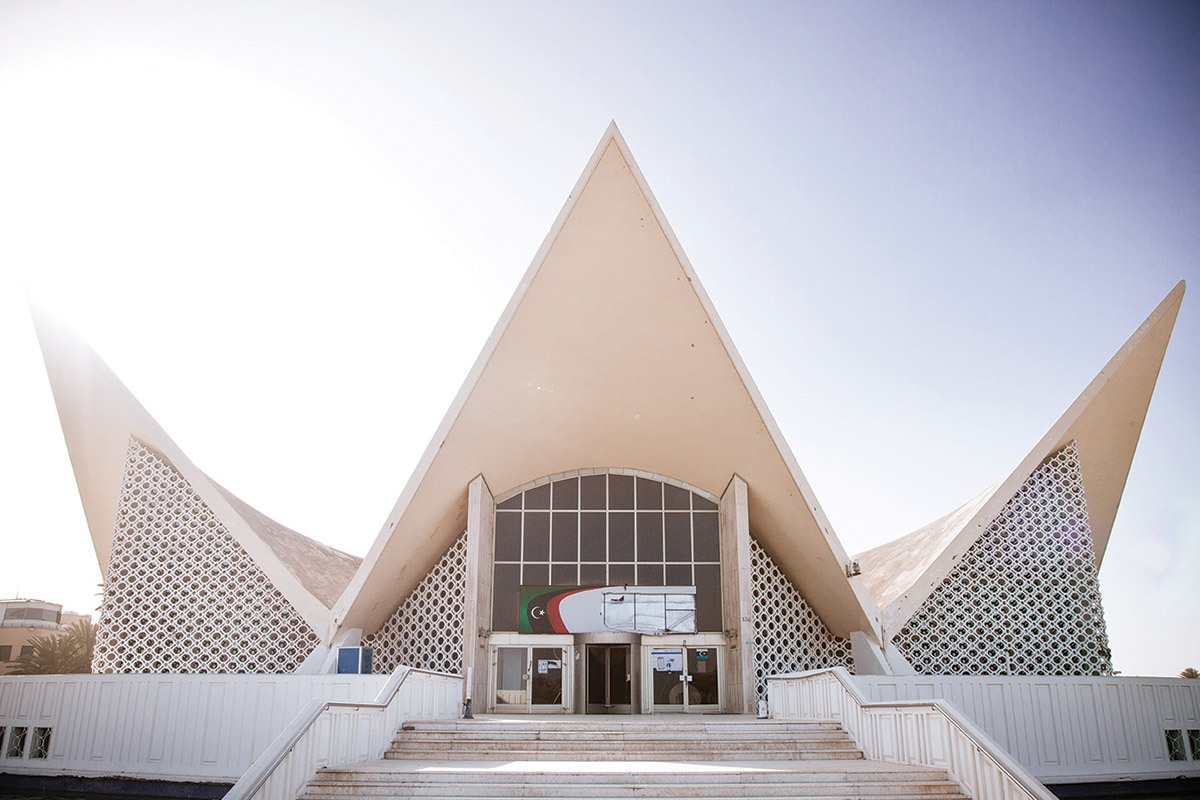
Planetarium in Tripoli, Lebanon, designed by Ulrich Müther. Image © Naziha Arebi
The models are surrounded by contemporary photographs. For the section entitled Places, curator Mohammed Elshaded created large-scale collages that represent ten cities. They are complemented by texts and plans from the cities of Ankara, Birzeit, Tripoli, Rosetta, Baghdad, Damascus, Khartoum, Tangier, Tehran and Sharjah.
In the final section, Societies, the author Amira Asad profiled people from the MENA region who live in the diaspora: Kurdish communities in the USA, Yemenites in Singapore, or Tunisians in Paris.
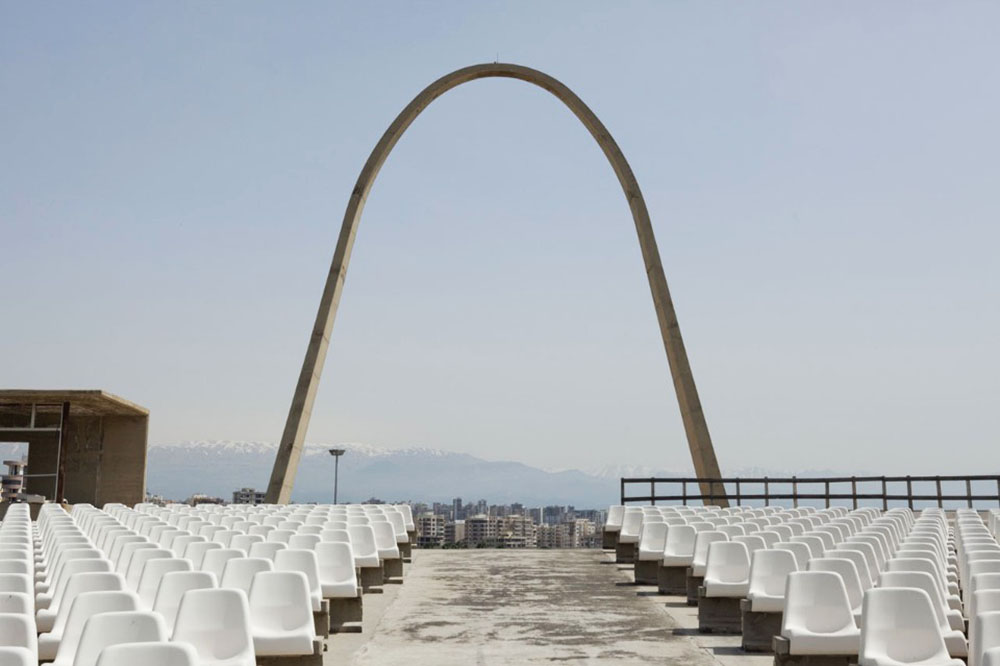
International Fair of Tripoli in Tripoli, Lebanon by Oscar Niemeyer, 1962 - 1977. Image © Philip Cheung
In ten collages comprising images, texts and sound, urban communities or protagonists offer insights into their inter-cultural lives and the city spaces they have helped to create.
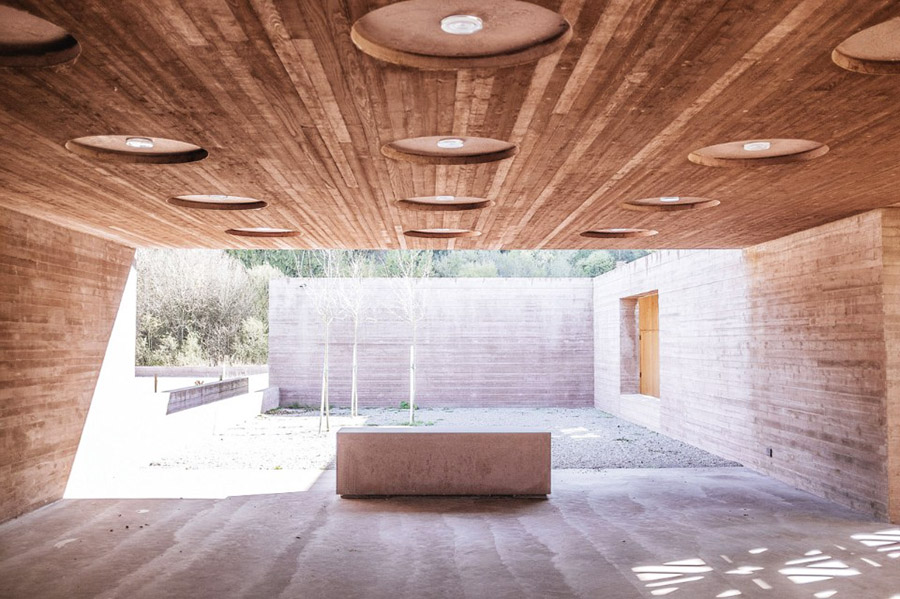
Islamic Cemetry in Altach, Vorarlberg, Austria, designed by Bernardo Bader, 2014. Image © Matthias Rhomberg
Mudun دن Urban Cultures in Transit features contemporary photographs and models that convey the dynamic atmosphere of individual locales. The Brownbook magazine archive served as an important source for the exhibition.
Over the course of an entire year, the magazine’s editors and the Vitra Design Museum discussed the content and design of the exhibition in collaboration with a large group of curators. The foremost aim is to give visitors a direct experience of these cities and their inhabitants. The title of the exhibition, mudun, is the Arabic word for cities – the plural form of the word medina.

Disarming Design, Palestine, 2014. Image © Hamde Abu Rahma
For the opening on May 12, the curatorial team around Rashid Bin Shabib (Brownbook) and Janna Lipsky (Vitra Design Museum) will present the exhibition. The co-curators Mohamed Elshahed, Farma Al-Sehlawi and Amira Asad each will give a short presentation on one of the exhibition’s projects.
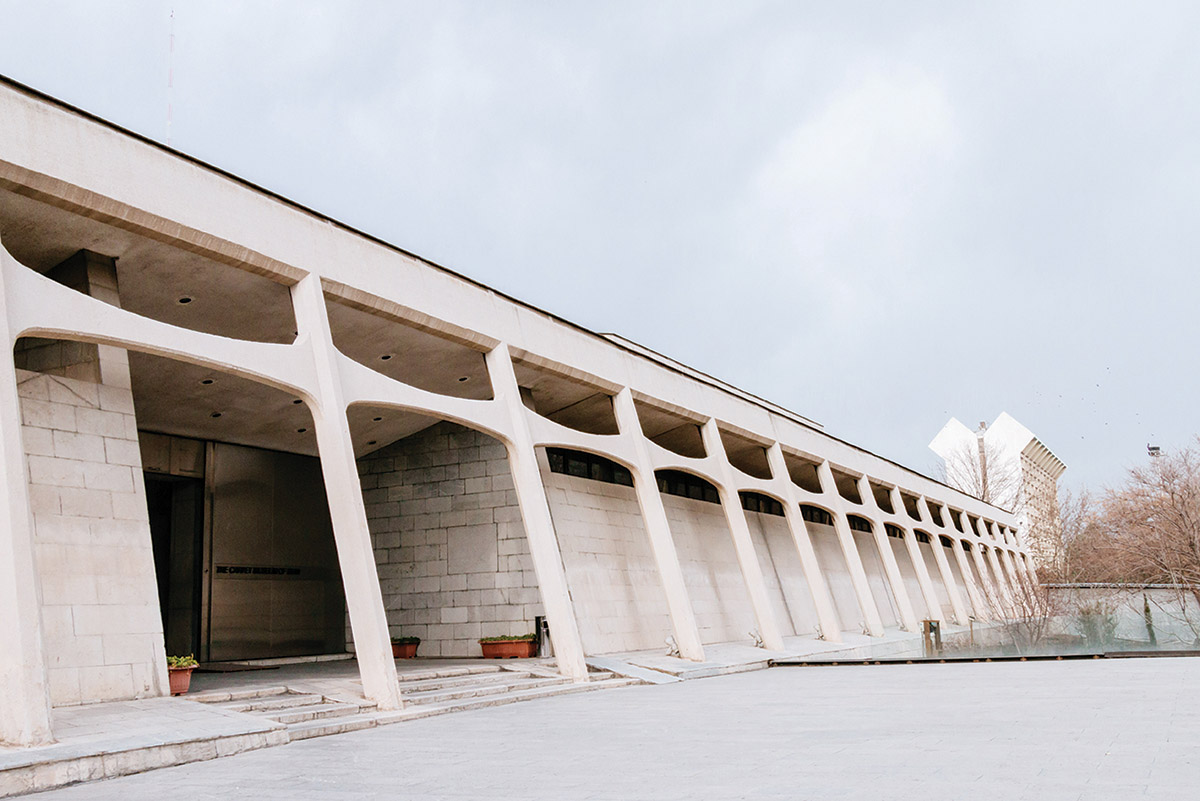
Carpet Museum in Tehran, Iran. Image © Hanif Shoaei
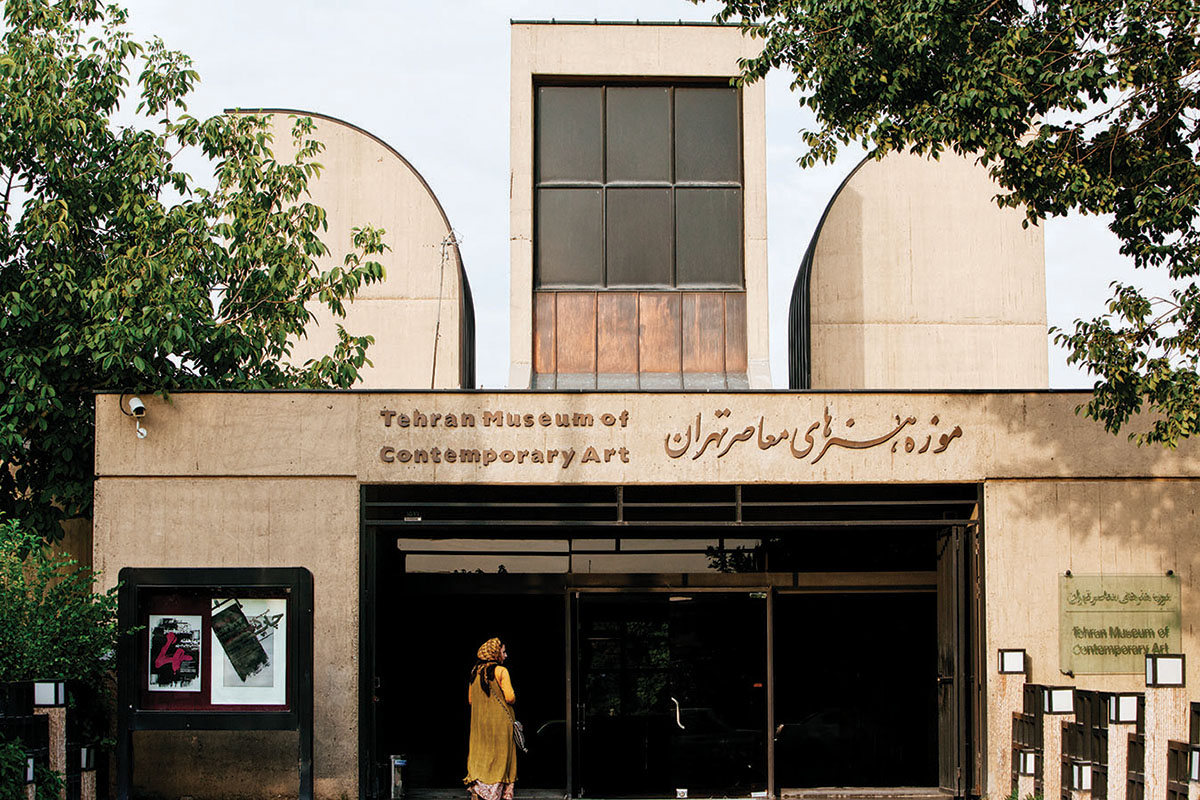
Tehran Museum of Contemporary Art, Iran, designed by Kamran Diba, 1977. Image © Abbas Kowsari
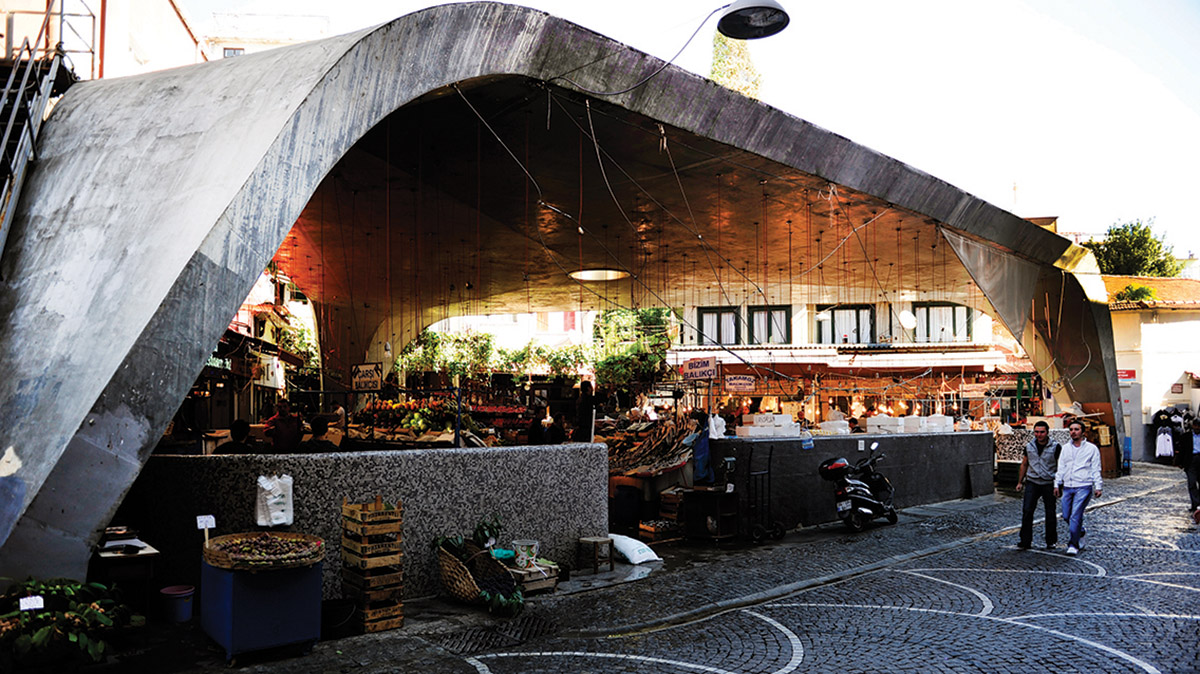
Beşiktaş Fish Market in Istanbul, Turkey, designed by Global Architectural Development (GAD), 2008/2009. Image © Aydan Cinar
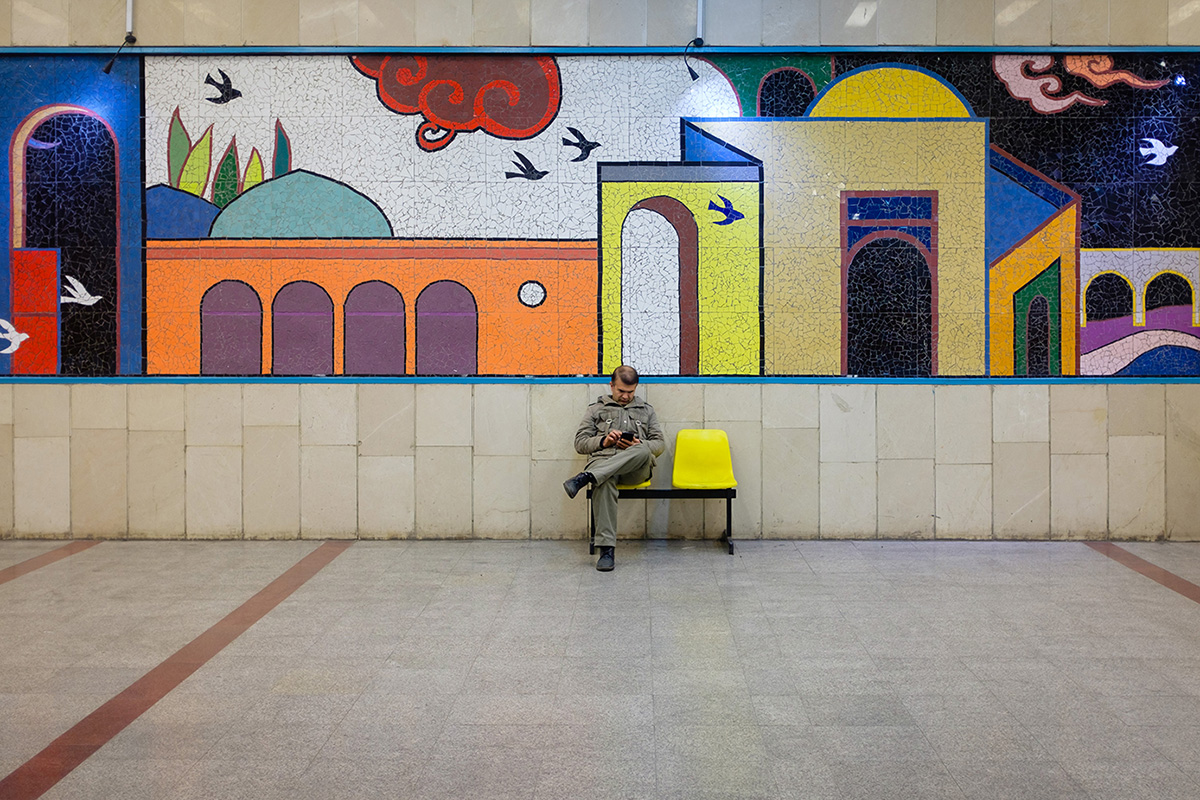
Karaj metro station in Tehran, Iran. Image © Hanif Shoaei
Top image: Qatar University in Doha, Qatar Designed by Kamal El Kafrawi, 1974-1983. Image © Markus Elblaus
> via The Vitra Design Museum
